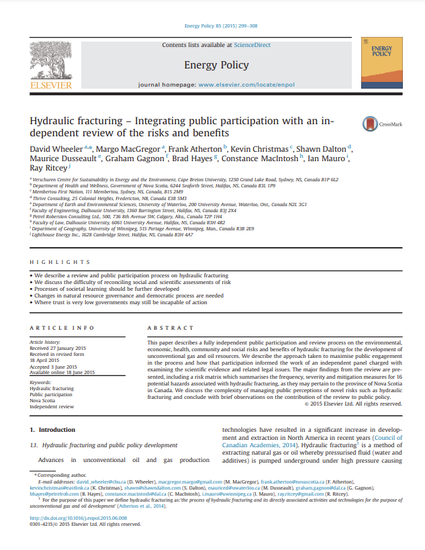
- Hydraulic Fracturing,
- Public Participation,
- Nova Scotia,
- Independent Review,
- Hazards,
- Public Policy
This paper describes a fully independent public participation and review process on the environmental, economic, health, community and social risks and benefits of hydraulic fracturing for the development of unconventional gas and oil resources. We describe the approach taken to maximise public engagement in the process and how that participation informed the work of an independent panel charged with examining the scientific evidence and related legal issues. The major findings from the review are presented, including a risk matrix which summarises the frequency, severity and mitigation measures for 16 potential hazards associated with hydraulic fracturing, as they may pertain to the province of Nova Scotia in Canada. We discuss the complexity of managing public perceptions of novel risks such as hydraulic fracturing and conclude with brief observations on the contribution of the review to public policy.

https://doi.org/10.1016/j.enpol.2015.06.008